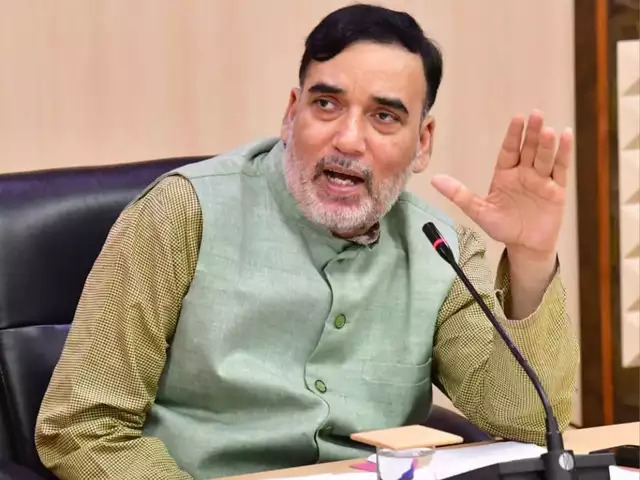

Amid the worsening air quality in Delhi, Delhi Environment Minister and AAP leader, Gopal Rai, stated that the smoke resulting from stubble burning in Haryana and Uttar Pradesh has a more significant impact on the national capital than that from Punjab. He mentioned that as per the Centre’s data, cases of stubble burning in Punjab have reduced this year.
“Central government figures show that less stubble has been burned in Punjab this year compared to last year. Punjab’s stubble smoke does not have as much impact on Delhi as that of Haryana and Uttar Pradesh. This is because there is no movement in the wind. Only if the wind blows, the smoke from Punjab will reach Delhi. Right now, there is smoke all around Delhi. The smoke from stubble burning in Haryana and Uttar Pradesh is reaching Delhi,” he explained.
On the fourth consecutive day, Delhi’s air quality remained in the ‘Severe’ category. According to SAFAR-India data, the air quality in the Lodhi Road area was recorded at 385 (Very Poor), while at Delhi University area, it stood at 456 (Severe). Drone camera footage from the Qutub Minar area depicted a thick layer of haze in the air.
Residents in Delhi and Noida expressed difficulties in breathing due to the increased pollution. Pollution levels also soared in Noida, reaching the ‘severe’ category with an AQI of 466. In Gurugram, the AQI was recorded at 392, categorizing the air quality as ‘Very Poor.’
The situation has raised concerns among medical professionals, as the AQI levels have surpassed 400, posing significant risks, especially for individuals with lung-related diseases. In response to the escalating pollution levels, the National Green Tribunal (NGT) sought immediate action from the Chief Secretaries of the affected states to prevent and control air pollution in these cities. The NGT emphasized the importance of taking swift remedial measures to ensure better air quality for residents.